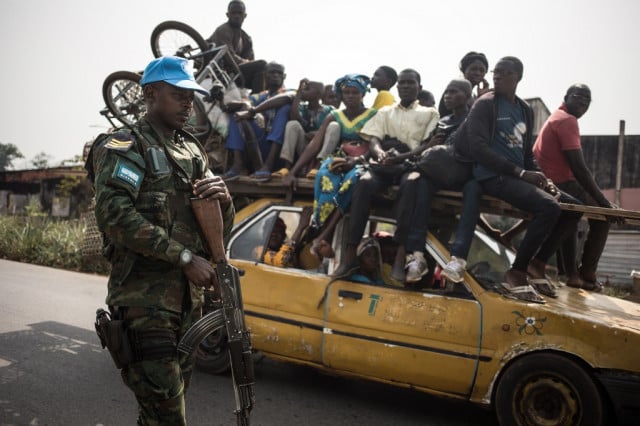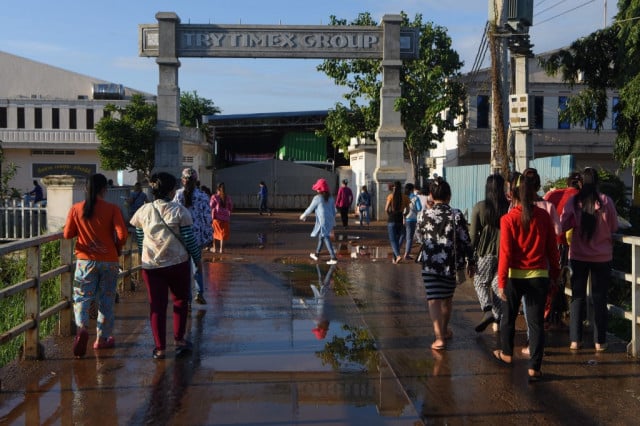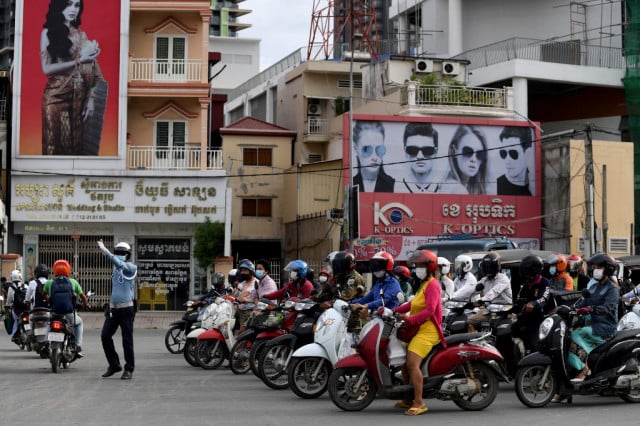A Kampot Fishermen Community Is Intent on Protecting Seagrass
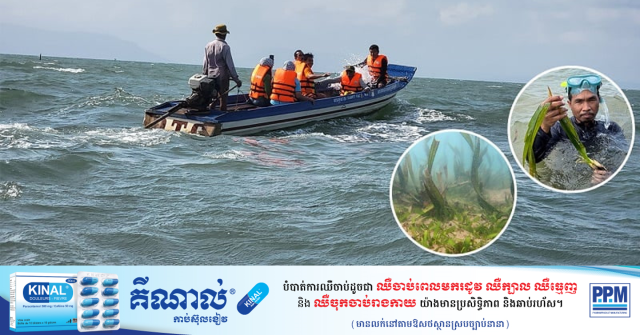
- By Khorn Champa
- and Chhum Chantha
- March 3, 2024 7:00 PM
KAMPOT — A fishermen community in Kampot province has been running a program to protect and conserve seagrass. While this is food and also serves as spawning ground for rare sea species and creatures, they say, it is being decimated by the illegal fishing tools some individuals use.
According to Uk Sovannrith, president of the Prek Tnaot Fishing Community, sea grass ensures the presence of rare species. The plant also acts as a natural barrier to prevent soil erosion, reduces ocean waves, absorbs and stores carbon dioxide, and produces oxygen, he said.
Kampot province has the most sea grass among the four provinces—Kampot, Kep, Koh Kong and Preah Sihanouk—with seashore, Sovannrith said. Sea grass covers around 700 hectares in the Prek Tnaot community where 200 hectares are set to be conserved, he explained.
However, the extent of illegal fishing-tool use has decreased the plant coverage, which now requires protection from the communities to prevent being lost, Sovannrith said.
Today, not only does the community has sea diversity—such as crabs, lobsters, shrimps, and fish—but its people maintain a 1,000-hectare area that serves as spawning ground, food resource, and home pink dolphins, Irrawaddy dolphins, dugongs, turtles, and Danio fish, which are all rare sea species, he said.
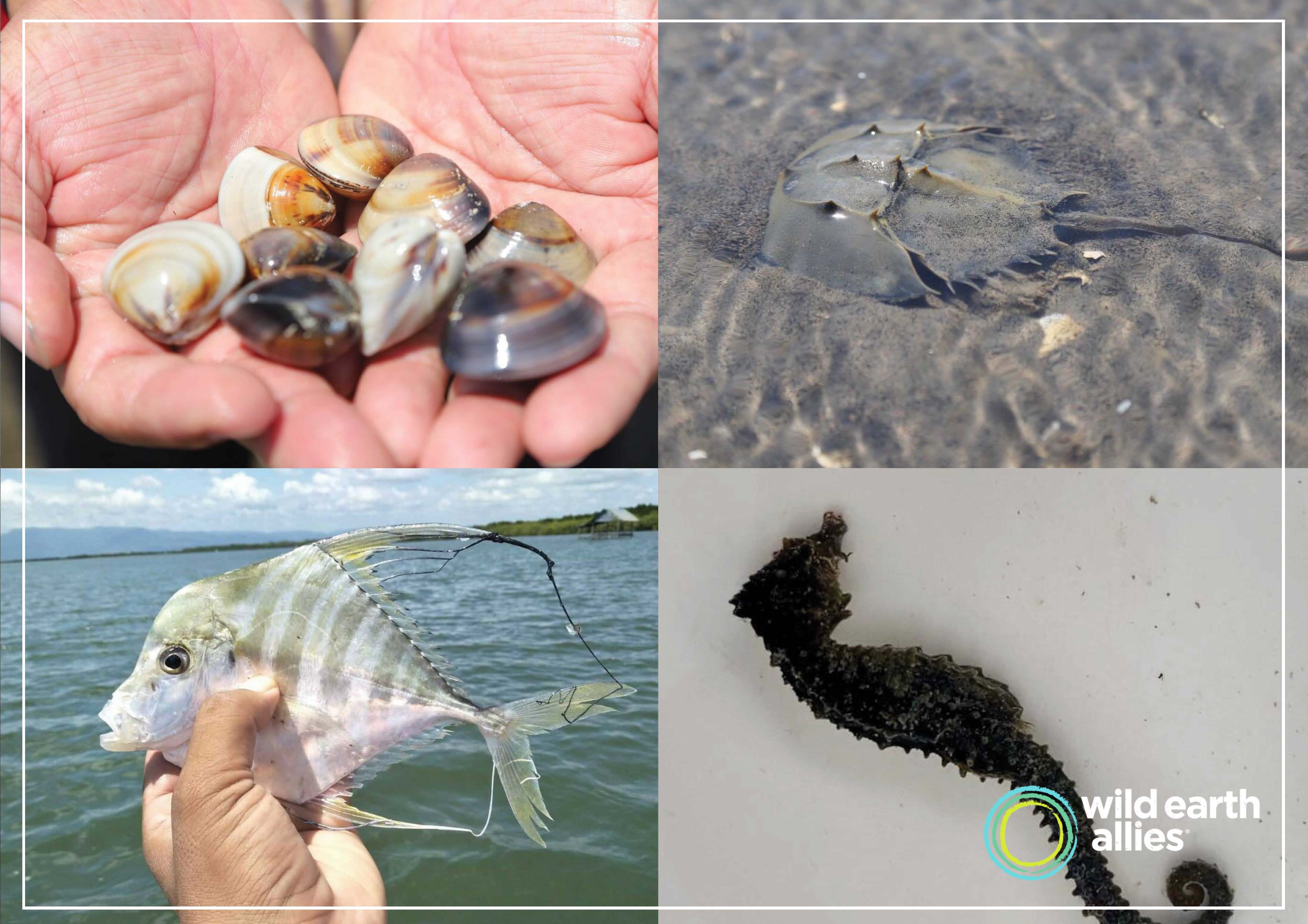
Caption: Several species depend on sea grass for survival. Photo: Wild Earth Allies
The Trapeang Sangkae community, which is one of the model tourism destinations in Kampot province, protects sea grass by keeping watch and prohibiting illegal fishing tools in the area.
Community members are also doing their might to protect the mangrove forests and plant trees because forests are considered the “bodyguards" of sea grass, said the community President Seum Him.
With support from its partners, the non-profit organization Aide et Action Cambodia is implementing the Consortium for Sustainable Alternatives and Voice for Equitable Development project (CO-SAVED) to strengthen and enhance the livelihood of the communities who are working on sea diversity conservation.
According to Vorn Samphors, Aide et Action country director, the CO-SAVED project has provided for local-community members training in numerous areas ranging from driving tourist boats and hospitality, to technical and capital for raising fish, chicken, oyster, as well as growing climate-resilient crops.
Samphors hopes that these activities will help expand sources of income for people and encourage them to continue maintaining their communities and activities such as protecting seagrass.
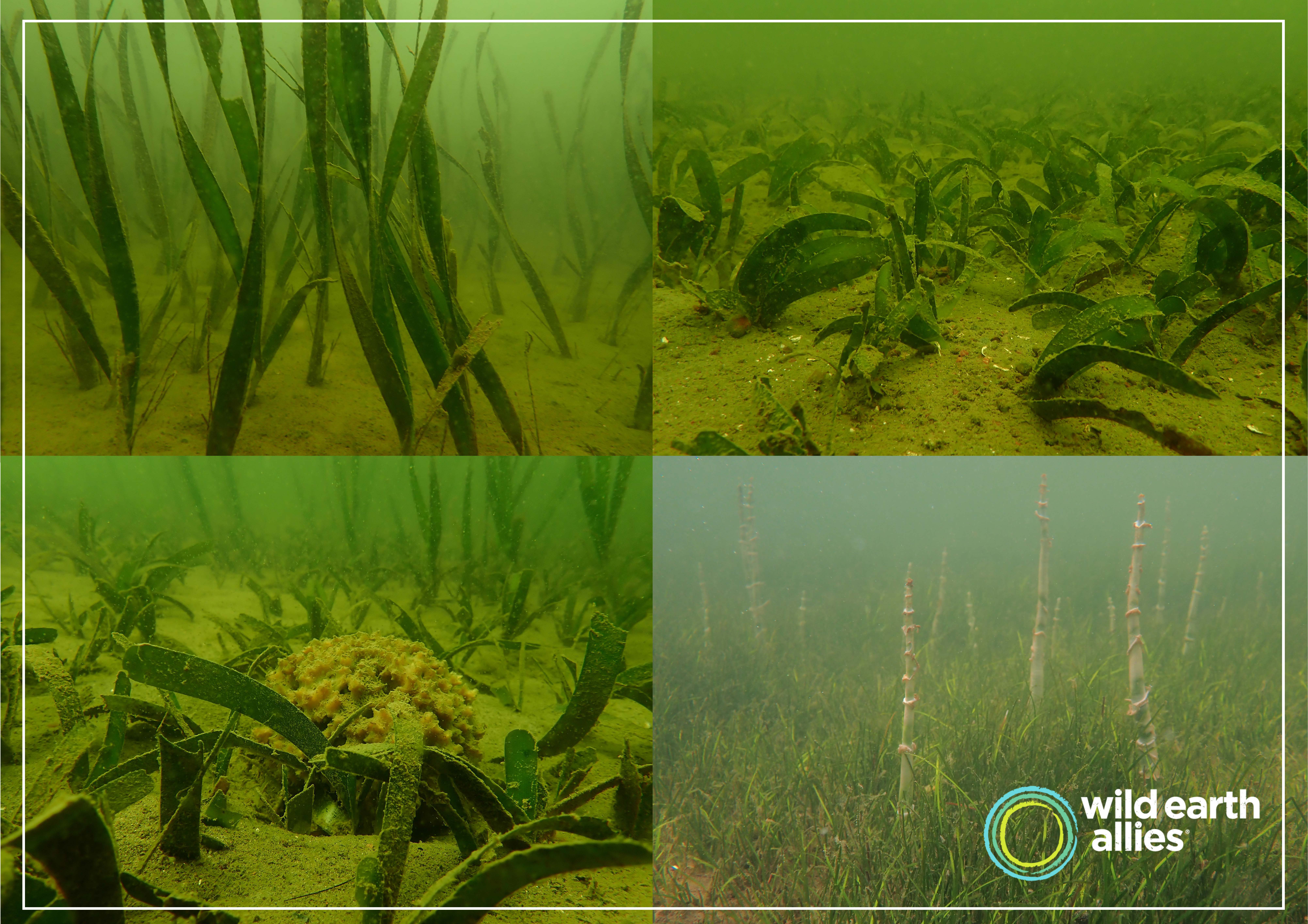
Caption: The growth of seagrass on riverbeds is affected by the use of illegal fishing gears. Photo: Wild Earth Allies
Originally written in Khmer for ThmeyThmey, this story was translated by Meng Seavmey for Cambodianess.






